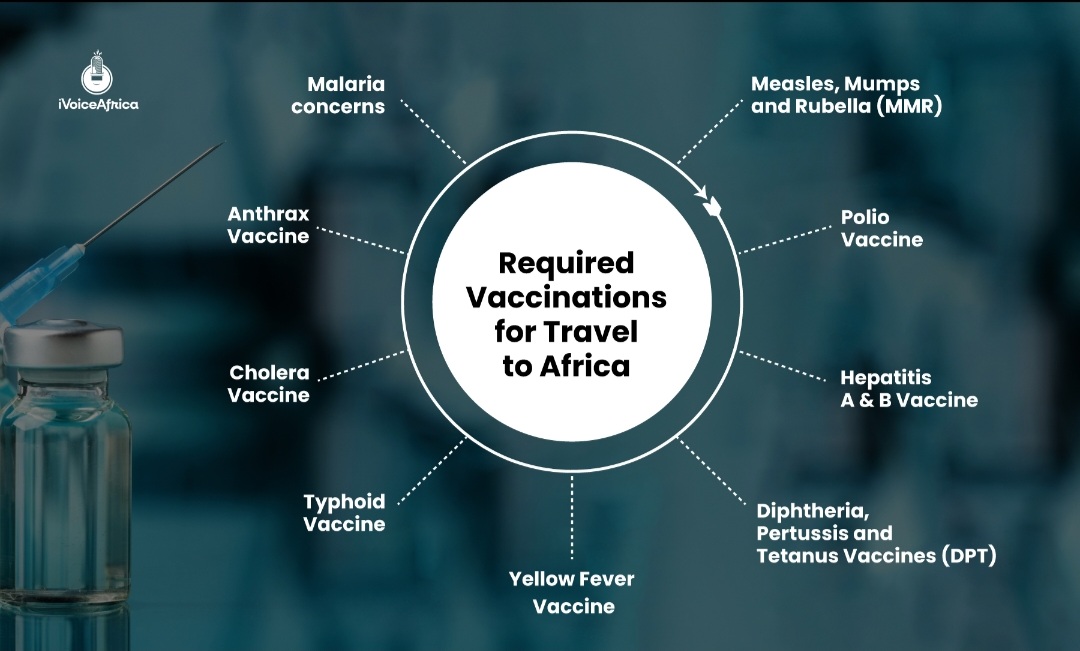Africa is undeniably one of the most fantastic tourist destinations in the world, which is why there are over 30 million visits yearly. However, there are some vaccinations that are required when travelling to Africa.
Like the rest of the world, Africa views vaccines as the primary prevention of disease and one of the most cost-effective public health measures available.
Building on the experiences of Ebola and COVID-19, many African countries and European counterparts have imposed strict vaccination laws on tourists travelling to Africa.
In this post, we’ll look at the required vaccinations for travel to Africa to ensure you are adequately informed before embarking on a trip.
Required Vaccinations for Travel to Africa – Key Takeaways
- Travelling to Africa is hassle-free when you have the required vaccinations.
- For the yellow fever vaccine to be effective, travellers should get it at least 10 days before their trip.
- The cholera vaccine isn’t routinely recommended for trips to Africa
- There is no vaccine for malaria, but antimalarials are very effective in combating the disease.
PSA: First, visit your doctor.
iVoiceAfrica isn’t a licensed medical team. We are simply translation and localization experts on all things Africa. So before we get into the required vaccinations for travel to Africa, we suggest you see a doctor, especially if you have health issues.
Required Vaccinations For Travel To Africa

1. MMR – Measles, Mumps and Rubella (German measles) Vaccines
The Advisory Committee on Immunization Practices (ACIP) recommends that all healthy people receive the MMR vaccine, as well as babies who haven’t been immunized.
But adults who have laboratory confirmation of past infections or were born before 1957 are safe from Measles, Mumps and Rubella reinfection, so it’s okay to skip the vaccine.
2. Polio Vaccine
Children typically receive the polio vaccine before they turn 6 but children who haven’t must do so before visiting Africa. Adults, on the other hand, are likely to have been vaccinated when they were children, so they are most likely protected from polio.
A few African countries like Nigeria, Burma, Guinea and Laos require travellers to have polio vaccination documents upon entry into the country.
3. Hepatitis A & B Vaccines
Previously, the hepatitis A and B vaccines were administered separately, but now, there is a combined Hepatitis A and B vaccine that offers improvements in vaccination schedules, increases patient compliance and lowers the cost of the vaccine. And many African countries have adopted adequate measures for providing these vaccinations against Hepatitis A and B.
4. DPT – Diphtheria, Pertussis (whooping cough) and Tetanus Vaccines
Reports of DPF have been recorded in almost every country, though there are higher cases in countries with poor socio-economic development. Due to this, adults are required to take booster shots against tetanus and diphtheria.
There are no universal recommendations for pertussis vaccination for adult travellers as it is well under control compared to diphtheria and tetanus.
5. Yellow Fever Vaccine
The yellow fever vaccine is one of the compulsory vaccines expected of visitors when travelling to Africa.
For the yellow fever vaccine to be effective, travellers must receive it at least 10 days before their trip to Africa.
6. Typhoid Vaccine
The typhoid vaccine provides protection from two to five years after it has been given. And it should ideally be given at least a month before your travel date. It can also be given at a closer date to your trip if required by immigration laws.
Booster shots are also advised every three years if you live in a region with a high typhoid rate.
The WHO recommends three (3) typhoid vaccines for people travelling to Africa.
- An injectable typhoid conjugate vaccine (TCV) – licensed for children from 6 months of age and adults up to 45 years of age
- An injectable unconjugated polysaccharide vaccine – for travellers aged two years and above
- An oral live attenuated Ty21a vaccine – for travellers aged 6 and above.
7. Cholera Vaccine
The cholera vaccine can be administered at least 10 days before a trip to Africa. Many times, the vaccination for cholera isn’t routinely recommended for trips to Africa, but in the event of a suspected outbreak, it will be a required vaccination for travel to Africa.
8. Anthrax Vaccine
Anthrax vaccination is not always recommended to visitors travelling to Africa unless otherwise indicated for occupational reasons. And since the risk of contracting anthrax is very low, many African countries waive proof of vaccination.
9. Malaria Concerns
Unfortunately, there are no vaccines for malaria, and the African region has a high number of malaria cases. However, antimalarials are a great way to curb the illness. They are recommended by your doctor based on your medical record and drug resistance level to combat this.
Common Side Effects of Vaccinations
Side effects are very common when vaccine shots are given.
While some side effects are mild, and others are more severe, you should contact your local clinic or doctor if they appear abnormal or persist.
Also, remember that these side effects could signify that your body is developing immunity to a disease.
These side effects may vary from person to person, however, some general symptoms include:
- Pain/redness around the area where you received the shot
- Tiredness.
- Headaches
- Muscle ache
- Mild fever
General Tips for Travelling to Africa
- Pack your prescription and OTC medications.
- Be prepared for jet lag.
- Pack a First Aid Kit
- Buy food from restaurants and hotels. They are safer than street stalls.
- Always use mosquito repellant.
- Pack clothes that suit the climate in your selected destination. Africa is known to be generally hot, so cotton-like material is preferred. Check out everything you need to know when planning a trip to Africa.
- Get updated emergency numbers in the country you are travelling to.
You are assured of excellent health throughout your stay in Africa if you follow the correct medical advice from your doctor or medical travel specialist and get the current vaccinations listed in this post.
Your only concern would be the long-haul flight and jet lag that comes after.
If you need more information on anything Africa-related, contact us at info@ivoiceafrica.com. We will ensure you have the best experience and connections with Africa.




